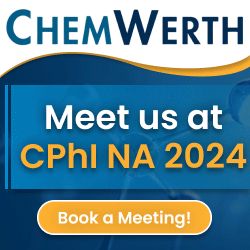Each year,
the US Food and Drug Administration (FDA) approve hundreds
of new medications. A small subset of approvals, classified as novel drugs, are considered to
be truly innovative products that often help advance clinical care.
In 2015, the
FDA approved 45 novel drugs, an all-time record high. PharmaCompass has compiled a list of novel drugs approved by the FDA in 2015.The FDA also approved new dosage forms of existing products in the market (email us if you would like a copy), like the 3D printed version of anti-epilepsy drug, Spritam (Levetiracetam).
This week, PharmaCompass focuses on the new dosage
forms of existing drugs that got approved last year.
Modified blockbusters
Improving the delivery form of a blockbuster drug is something that not only helps patients but often successfully extends the patent life of the cash-generating drugs for Big Pharma. Here are some blockbuster drugs that saw their modified versions being launched in 2015:
Jadenu (deferasirox): With
almost a billion dollars in revenues in 2015, Exjade (deferasirox) was approved in 2005 as a
tablet for use in a suspension. Novartis, the innovator,
got approval in March 2015
for Jadenu, a once-daily oral tablet. Jadenu (deferasirox), a new formulation
of Exjade, is the only once-daily oral tablet for iron chelation. Jadenu has
simplified daily treatment administration for patients with chronic iron
overload.
Nexium
24HR (esomeprazole magnesium): Also
known as the Purple Pill, Nexium – Astra
Zeneca’s blockbuster drug for acid reflux that generated annual sales in America of more than US $ 3 billion – went generic in 2015. In order to extend Nexium’s market, Pfizer and AstraZeneca came together to promote an over-the-counter (OTC) version of Nexium. A capsule version of OTC Nexium was approved in 2014 and is known as
Nexium 24HR. Last year, the FDA granted approval to the tablet form of the
drug.
Iressa
(gefitinib): AstraZeneca re-introduced Iressa in
the US market in 2015. The
FDA had approved Gefitinib in May 2003 for non-small cell lung cancer. Approved
as a third-line therapy, in 2010 the FDA requested AstraZeneca to voluntarily withdraw Iressa tablets
from the market, as post-marketing studies had failed
to verify and confirm clinical benefit. Iressa (gefitinib) is now back in the US as a first-line therapy for a type of lung cancer. However, the patent protection is limited – only one listed patent in the Orange Book which expires next year, and five US Drug Master Files already submitted.
Onivyde (irinotecan): Liposomal formulation of anti-cancer
drugs have been in vogue for some time. Merrimack Pharmaceuticals got its novel encapsulation of Irinotecan in a liposomal formulation approved for the
treatment of patients with metastatic pancreatic cancer, sold under the brand
name Onivyde.
Vivlodex (meloxicam): In October 2015, the FDA approved 5 mg and 10 mg (administered once daily) doses of Vivlodex™ (meloxicam) capsules, a nonsteroidal anti-inflammatory drug (NSAID) used for the management of osteoarthritis pain. The previously approved doses for meloxicam capsules were 7.5mg and 15mg. Vivlodex uses a proprietary SoluMatrix Fine Particle Technology™, which contains meloxicam as submicron particles that are approximately 10 times smaller than their original size. The reduction in particle size provides an increased surface area, leading to faster dissolution.
Kalydeco (ivacaftor): A cystic fibrosis drug from Vertex Pharmaceuticals – Kalydeco – has been making headlines
because of its high price (more than US $ 300,000 a year). Price concerns
aside, 2015 saw the launch of a pediatric version of the drug as a ‘weight-based oral granule formulation of Kalydeco that can be mixed in soft foods or liquids’.
Extended release versions
Many of
the approvals granted by the FDA last year were to extended release
formulations (a pill formulated so that the drug is released slowly) of
existing drugs.
Kremers Urban’s
extended release version of Methylphenidate
capsules made headlines last year because of a reclassification of the drug by
the FDA. Under the new classification rating, methylphenidate hydrochloride extended-release tablets can be prescribed but may
not be automatically substituted for J&J’s reference drug Concerta (methylphenidate hydrochloride). Kremers Urban was almost sold last year. But due to this reclassification, investors aborted their US $ 1.53 billion buyout. Kremers Urban was later acquired by Lannett Company Inc.
In
addition, extended-release versions of Aspirin, Carbidopa/Levodopa, Paliperidone Palmitate, Tacrolimus
and Morphine Sulphate also received green signals for a market launch.
First generic opportunities
Last year, PharmaCompass
shared the names of some drugs which had no generic competition and were also
not protected by patents. (Read: “Litigation Free, first generic opportunities list”).
Deferiprone (a drug that chelates iron and is
used to treat iron overload in thalassemia major) met the criteria. But it still
has no generic competitor and is now available as a new dosage form.
Amedra Pharmaceuticals, now owned by Impax Laboratories, has enjoyed the rights to sell Albendazole tablets for almost two decades
without generic competition in the US. Albendazole is a medication used for the
treatment of a variety of parasitic worm infestations. In 2015, patients were
provided access to chewable tablets of Albendazole.
New combinations at work
The FDA also approved
multiple combination drugs where the individual active ingredients had been brought
to market previously.
Most of the combination drugs
approved belong to major pharma players like Novartis, Novo Nordisk, Bristol Myers etc.
Boehringer’s diabetes treatments – Jardiance (empagliflozin) – approved in 2014 and
Tradjenta (linagliptin) approved in 2011, were
combined and the combination drug product Glyxambi was approved in 2015. Another
combination of empagliflozin, with metformin – Synjardy – was also approved in August last
year.
Lesser known companies also
got combination drugs approved. UK-based
development company Vernalis got approval for its cold-cough treatment, Tuzistra XR – an extended release suspension of codeine polistirex and chlorpheniramine
polistirex.
Similarly, US-based biopharmaceutical startup, Spriaso LLC, also
working in the cold and cough therapeutic area, got an extended release tablet
containing codeine phosphate and chlorpheniramine maleate approved.
Symplmed, a company which is
developing various forms of Perindopril, got approval for Prestalia (a
combination of perindopril arginine and amlodipine besylate) for the
treatment of hypertension.
Our view
Each year, the FDA approves several
pharmaceutical drugs in order to improve patient care; and often versions of
these drugs are marketed and distributed across the globe.
PharmaCompass’ list of drugs approved in 2015 is now available – just email us for your copy.
Accelerate your drug development
PharmaCompass has also launched
the Drug Development Assistance tool on its platform.
Simply search for the drug or the active ingredient of your interest, click on the Drug Development icon on the left menu bar and you can see the inactive ingredients used to formulate
the various drug products approved in the United States.
Impressions: 5419
Teva Pharmaceutical Industries, Ltd., which acquired Cephalon in 2012, will make a total payment of $1.2 billion as part of a ‘pay-for-delay’ settlement reached with the Federal Trade Commission (FTC) last week.
What exactly did Cephalon, for which Teva paid $6.8 billion, do so wrong? Isn’t ‘pay-for-delay’ common practice in the pharmaceutical industry?
First of all what is a
pay-for-delay?
‘Pay for delay’ or reverse payment patent settlements, are agreements where the brand name drug manufacturer compensates generics, not to market the generic product for a specific period of time.
These settlements allow the brand manufacturers to extend their
patent monopolies and according to an FTC study, these deals
cost consumers and taxpayers $3.5 billion in higher drug costs every year.
What exactly happens and
why is it a big deal now?
Cephalon allegedly paid four generic drug companies (Teva, Ranbaxy Pharmaceuticals, Mylan Pharmaceuticals, and Barr Laboratories), over $300 million in total. In return the generics agreed to drop their patent challenges and forgo marketing of their generic versions of Cephalon’s blockbuster sleep-disorder drug Provigil, for six years, until April 2012.
An extended monopoly for Provigil, in the absence of generic competition, was “$4 billion in sales that no one expected”, the CEO of Cephalon reportedly said when the deal was struck.
While in Europe, regulators have been going after pay-for-delay cases for years, it was only as recently as 2013, in FTC v. Actavis, that the U.S. Supreme Court made clear that reverse payment patent settlements are subject to the same antitrust rules that govern general U.S. business conduct.
The payment made by Teva will compensate purchasers, including drug wholesalers, pharmacies, and insurers, who overpaid because of Cephalon’s illegal conduct, is the first positive outcome for the FTC after the Supreme Court ruling.
How common are ‘pay-for-delay’ settlements?
Based on data provided by the FTC, for the past few years, more
than 100 settlements are reached annually between brand and generic
pharmaceutical companies.
Over 30% of these settlements have the potential of being ‘pay-for-delay’ agreements.
Table// Potential
pay-for-delay settlements reached between brand and generic companies:
Financial Year
2004
2005
2006
2007
2008
2009
2010
2011
2012
2013
Final Settlements:
between brand and generic companies
14
11
28
33
66
68
113
156
140
145
Involving First Generic Filing
8
5
11
16
29
32
49
54
43
41
Potential Pay-for-Delay:
Involving First Generic Filing
2
9
11
13
15
26
18
23
13
Settlements
3
14
14
16
19
31
28
40
29
How severe are the penalties for ‘pay-for-delay’ settlements in Europe?
The European Commission has
fined Johnson
& Johnson (J&J) just under 10.8 million
euros and Novartis 5.49 million euros, after discovering a ‘pay-for-delay’ deal on the painkiller Duragesic (fentanyl).
The amount pales in comparison to
the whopping €428m fine on Servier and several other companies (Niche/ Unichem; Matrix, which is now part of Mylan; Teva; Krka and Lupin) for conspiring to delay generics of the widely-used blood pressure drug Coversyl/ Aceon (perindopril).
In yet another settlement, agreements which operated in 2002 and
2003 between the Danish originator Lundbeck, and other
generic companies, resulted in Euro
146 million in fines.
What should we expect in the future?
Based on an FTC
presentation made in September 2014, they highlighted 19 Cases to Watch, which has them targeting almost every
major brand and generic pharmaceutical company. However, with the complexities
involved, this list is continuously evolving:
The
cases (by name of the brand product) Actos,
Adderall,
Aggrenox,
AndroGel,
Cipro,
Effexor,
K-Dur, Lamictal, Lidoderm,
Lipitor,
Loestrin,
Nexium,
Niaspan,
Opana,
Provigil,
Skelaxin,
Solodyn,
Wellbutrin.The
brand companies involvedAbbvie,
Abbott,
AstraZeneca,
Bayer,
Besins,
Biovail,
Boehringer,
Cephalon,
Endo,
GlaxoSmithKline,
King,
Medicis,
Pfizer,
Shire,
Schering,
Takeda,
Warner
Chilcott, Wyeth.The
generic companies Actavis
, Barr,
Duramed,
Dr. Reddy’s, HMR, Impax,
Lupin,
Mutual,
Mylan, Par, Perrigo,
Ranbaxy,
Rugby, Sandoz,
Teva,
Upsher
Smith.
Our view:
Pharmaceutical companies,
lawyers and the FTC will be busy for the coming few years, since there are a
series of suits, which will be challenging settlements reached between brand
and generic pharmaceutical companies.
While patents
provide temporary monopolies to promote innovation, brand drug manufacturers
will need to resort to more innovative ways of sustaining their profits.
Click here and learn about the different strategies adopted in the United States to block generics?
Impressions: 3400














